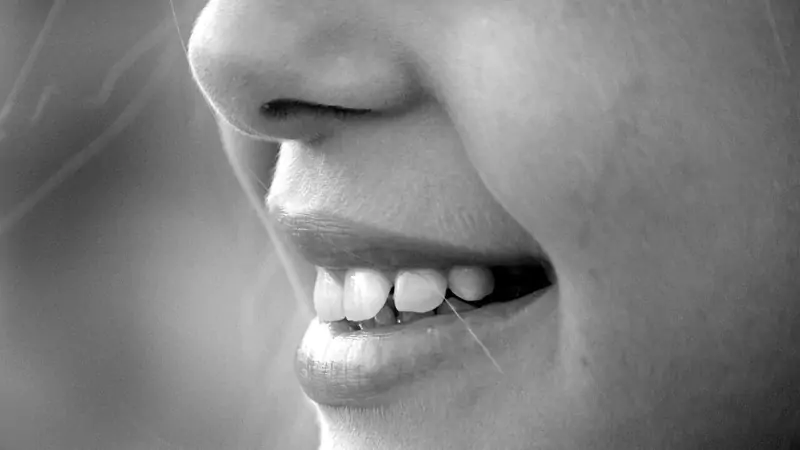Nosebleeds
We often encounter nosebleeds in life. Nosebleed is also known as epistaxis. The nosebleed is not a disease, it is just a symptom. Because many diseases can cause this. We see nosebleeds mostly in the winter months. Apart from this, nosebleeds are common in children and most of them are due to trauma. For example, children may poke their noses and cause nosebleeds. In adults, nosebleeds occur mostly due to hypertension and antithrombotic drugs. But the most common cause of all nosebleeds is nose poking.
Anterior and Posterior Nosebleeds
Our nose is our olfactory organ with a strong vascular network. Bleeding originating from the anterior part of the nose is mostly caused by local trauma. Bleeding from the back of the nose is mostly associated with hypertension (especially in older people) and other systemic causes.
Nosebleed Causes
Hypertension
Hypertension is an important cause of nosebleeds. High blood pressure can have many causes (eg, excessive alcohol consumption). In the case of high blood pressure, the body takes several methods to lower it. The body tries to regulate the situation with bleeding, which is the simplest of these methods. Nasal bleeding caused by hypertension is generally arterial bleeding and is pulsatile like a pulse.
Blood Disorders
Apart from blood pressure, blood diseases such as anemia, leukemia, and anticoagulant drug use are also important causes of epistaxis. There may also be bleeding due to coagulation deficiencies due to liver failure, which we see less frequently. In all such cases, it may not be easy to stop bleeding as there is widespread bleeding.
Foreign Bodies
Foreign bodies can also cause nosebleeds. These cause inflammation due to the trauma they create in the short term. Later, they cause discharge and bleeding. In these cases, the main complaint is usually a long-lasting foul-smelling nasal discharge.
Nasal Deformities
Nasal wall deformities cause more than normal turbulence by disrupting the airflow in the nasal cavity. Accordingly, they cause mucosal drying in the nose. In fact, turbulence is a relatively necessary thing in the nose. Because normal levels of turbulence are necessary for the circulation of air in the nose, contact with mucous surfaces, and smell. However, excessive turbulence can cause bleeding due to the drying of the nasal mucosa.
Tumors
Tumors are another cause of nosebleeds. The first symptom of nosebleeds due to a tumor is usually a runny nose mixed with blood. It is a purulent discharge. So it is very confused initially with sinusitis. If there is nasal congestion along with nasal bleeding in young men, the tumor should come to mind first. In the case of a tumor, there may be life-threatening bleeding.
Infections
Infections can also cause nosebleeds. Especially in children, diseases such as influenza, measles, and typhoid may cause nosebleeds. We can see nosebleeds, especially in the early stages of these infections.
Granulomatous Diseases
Apart from these, diseases such as tuberculosis and syphilis can also cause nosebleeds. We do not see these diseases very often today. But if they do, they can cause nosebleeds accompanied by purulent secretion.
Environmental Factors
Environmental factors can also cause nosebleeds. For example, people living in high altitudes, low atmospheric pressure, and dry and hot climates may have nosebleeds. Since the humidity is low, especially in closed places with central heating systems, the nasal and oral mucosa becomes dry and this can cause bleeding. In addition, alcohol use and consumption of alcohol-containing products can also cause dryness of the nose and mouth. In this respect, it is necessary to be selective even when choosing some oral care products (eg, mouthwash with the American Dental Association (ADA) seal such as TheraBreath Fresh Breath, CloSYS Sensitive Gentle Mint, CloSYS Ultra Sensitive Unflavored, Biotene Dry Mouth Oral Rinse, or a different choice: Tom’s of Maine Natural Wicked Fresh Mouthwash).
Other Causes: Endocrine, Hereditary,…
These are the reasons we see less. There may be nosebleeds due to irregular menstruation or during pregnancy. In fact, some hereditary diseases can also cause nosebleeds. For example, in Ossler disease, which is a hereditary disease, there is bleeding that starts after puberty and increases with age.
Nose Bleeding Treatment
In case of bleeding, we first wash our nose with cold water to clean the blood and clot, if any. Cold water reduces bleeding by contracting the blood vessels. Then we sit down, put our heads forward, and press our nose wings for 5 minutes. We do not swallow or aspirate blood in this position. If we lie back or tilt our head back, we swallow the blood flowing from the nose and the blood accumulating in the stomach can cause us to vomit. Blood can also get into our lungs. Moreover, we cannot know how much blood we have lost in this position. Therefore, it is a very unfavorable position. If the bleeding continues, we should go to the doctor immediately.

